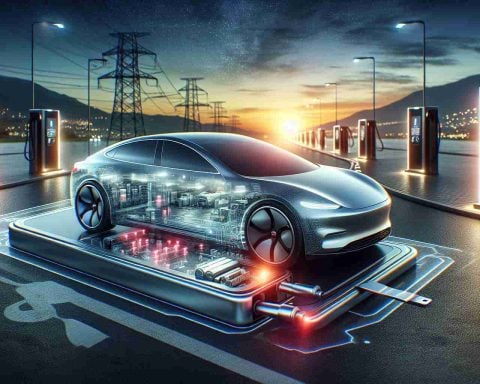Major Shift in the Trucking Industry
Daimler Trucks North America, a leader in the heavy truck segment, announced an abrupt change in its operations by ceasing sales of large diesel trucks in Oregon. This decision follows a new environmental regulation that mandates a growing percentage of electric trucks to be sold in the state.
Starting in 2025, the requirement dictates that seven out of every 100 Class 8 trucks sold must be electric, with that figure climbing to 40% by 2032. In 2023, only nine of the 1,708 heavy trucks sold in Oregon were electric, revealing the current market’s slow adaptation to electric models.
The decision is particularly impactful as Daimler’s North American headquarters is based in Portland, employing about 3,000 workers. The company cited uncertainty regarding how Oregon tracks electric truck sales, expressing concerns about the potential penalties for not meeting quotas, which they deemed unacceptable.
Oregon’s new regulations mirror similar rules in California and other states aimed at combatting rising carbon emissions from transportation. Heavy trucks represent a small portion of vehicles but contribute significantly to harmful emissions.
The regulations have sparked debate among stakeholders, with some arguing it could harm rural businesses and others stressing the importance of clean air standards. As this situation unfolds, the implications of such regulations continue to be a topic of concern for the trucking industry in Oregon.
Electric Truck Sales: A New Era in the Trucking Industry
Major Shift in the Trucking Industry
Daimler Trucks North America has announced a groundbreaking change in its operations, ceasing sales of large diesel trucks in Oregon in response to new environmental regulations. This strategic move comes as Oregon sets forth ambitious mandates requiring an increasing number of electric trucks in the market.
Starting in 2025, the state mandates that seven out of every 100 Class 8 trucks sold must be electric, with this percentage escalating to 40% by 2032. Currently, the adaptation to electric models appears sluggish; in 2023, only nine out of 1,708 heavy trucks sold in Oregon were electric. This stark figure highlights the significant challenge the industry faces in transitioning towards greener alternatives.
Trends and Innovations in Electric Trucking
The regulations established by Oregon reflect a larger trend toward sustainable transportation across the United States, similar to initiatives already in place in California and other states. Heavy-duty trucks, while representing a smaller portion of the overall vehicle count, are responsible for a significant percentage of harmful emissions.
# Pros and Cons of the New Regulations
Pros:
– Environmental Impact: Reduced carbon emissions and improved air quality are primary benefits, aligning with global sustainability goals.
– Market Growth for Electric Trucks: Increased demand for electric trucks spurs innovation and investment in electric vehicle technology.
Cons:
– Economic Concerns: Potential challenges for rural businesses that rely heavily on traditional diesel trucks might arise, impacting transport costs and service availability.
– Implementation Challenges: Questions concerning how sales are tracked and penalties for non-compliance present operational complications for manufacturers like Daimler.
Insights from the Trucking Sector
Experts predict that as regulations tighten, there will be an increased emphasis on research and development in electric truck technology. Innovations in battery technology, charging infrastructure, and energy efficiency will be crucial for meeting the new standards.
Security Aspects: As the industry moves towards electrification, cybersecurity in electric truck systems will become increasingly important. Protecting connected vehicle networks from potential threats is essential to ensure operational integrity.
Market Analysis and Future Predictions
As the push for electric trucks intensifies, companies within the sector will need to adapt rapidly. The trucking industry could see a shift in market dynamics, with electric truck manufacturers gaining a competitive edge, while traditional manufacturers may need to pivot their business models.
With the increasing pressure from both regulations and consumer demand for sustainable options, market forecasts suggest that electric truck sales could eventually represent a substantial segment of the heavy truck market by the end of the decade.
For additional insights on trucking trends and innovations, check out Trucking Info.
















